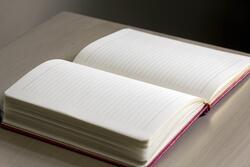Rabbi Hillel on Stress Relief
I grimace. My stomach churns. My muscles tense up. Reading the news used to be my favorite pastime. But ever since the election, reading the news feels like sitting in the backseat during another kid’s Driver’s Ed lesson: being jerked around by someone who doesn’t know what they’re doing as dangers lurk at every turn. American standards for truth and respect seem to be at an all-time low for my lifetime, and I’ve never felt so worried for the future.
Despite the emotional burden, being informed is essential. Our worst fears could become reality, and ignorance is dangerous. I’m committing myself to seeking truth and understanding its complexities. I want to stand up for my own rights and be an ally to others. However, because the next four years seems like an eternity, I also need to seek opportunities for respite.
Audre Lorde, an African-American feminist and activist, argues that maintaining personal wellbeing and fighting for others go hand in hand. She once wrote: “Caring for myself is not self-indulgence, it is self-preservation, and that is an act of political warfare.” The importance of self-care has long been discussed in the field of activism, and it’s gaining popularity in mainstream America. Its manifestations on college campuses have even recently received impassioned condemnation from some extreme conservatives. Interestingly, the idea of self-care can be traced back to the Torah.
Consider this story: “Hillel the Elder who, when he took leave of his students, used to walk with them a little way. His students asked him: Rabbi, where are you walking to? He answered: To do a mitzvah. They asked, What mitzvah? He replied, To take a bath in the bathhouse. They said to him: Is that really a mitzvah? He replied, Certainly! If the statues erected to kings in the theaters and circuses are washed and scrubbed by those in charge of them…how much more should I, who have been created in God’s image and likeness, [wash and scrub my body], as it is written: ‘For in the image of God he made man [Genesis 9:6].’”
In this story, Hillel describes the importance of caring for the physical body. His logic extends to mental and emotional health. Hillel’s bath reminds me of the distinction between enjoyable experiences and truly restorative ones. I sometimes escape stress by staying up late, eating junk food, and binge-watching TV. However, the benefits of these types of solutions are often short-lived, and even counterproductive, as the next day I’m often tired and apathetic. Instead, I’m trying to pursue truly beneficial practices that don’t drain me, but restore my body and mind. Of course, there are the classics like sleep and exercise. I also find comfort in mindless tasks that give me a sense of accomplishment, like putting away laundry or organizing my desk.
Hillel’s story also illustrates the necessity and religious significance of balancing hard work with leisure. After a long day of studying, he retires to the bathhouse to care for his health. In our modern world, relaxing activities such as going for a run, reading a book, or spending time with friends may seem fun, but frivolous. However, using Hillel’s argument, they honor God. The Torah teaches us that we are “created in God’s image,” and therefore caring for ourselves and taking breaks is a mitzvah (often translated as a good deed, and literally means a commandment).
Furthermore, Hillel touches on the benefits of both camaraderie and solitude. He doesn’t hesitate to answer his students’ questions and explain that he is leaving to go to the bathhouse. However, although it is unclear whether he will bathe alone or in a communal pool, Hillel then steps away from the study groups, demonstrating the power of disengaging. Likewise, I shouldn’t feel guilty when making the beneficial choice to enjoy time by myself, especially when that helps me appreciate my friends and communities more.
In this divisive and uncertain time, we must be informed, listen to others, and work together. To do so effectively, we need to treat each other with respect, and treat ourselves with respect. Self-care needs to be a top priority for each of us. We are each in charge of our own body, which, according to the Hillel story, is a gift from God, and we should thoughtfully care for it to the best of our abilities. Whenever I feel extremely overwhelmed by current events, I will try to remember that living as if I’m riding a car 90 miles an hour will lead to a crash. We each have a responsibility to care for others and fight for the greater good, but in order to withstand the long and arduous road ahead, we must take care of ourselves along the way.
This piece was written as part of JWA’s Rising Voices Fellowship.







